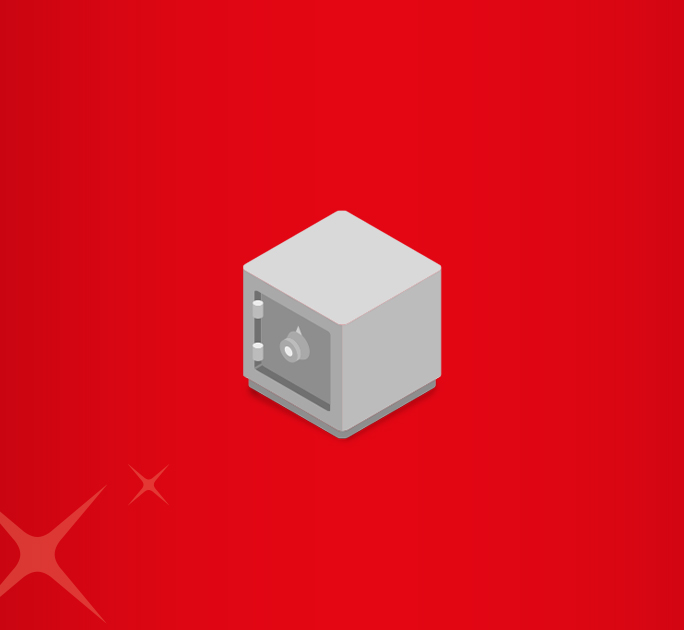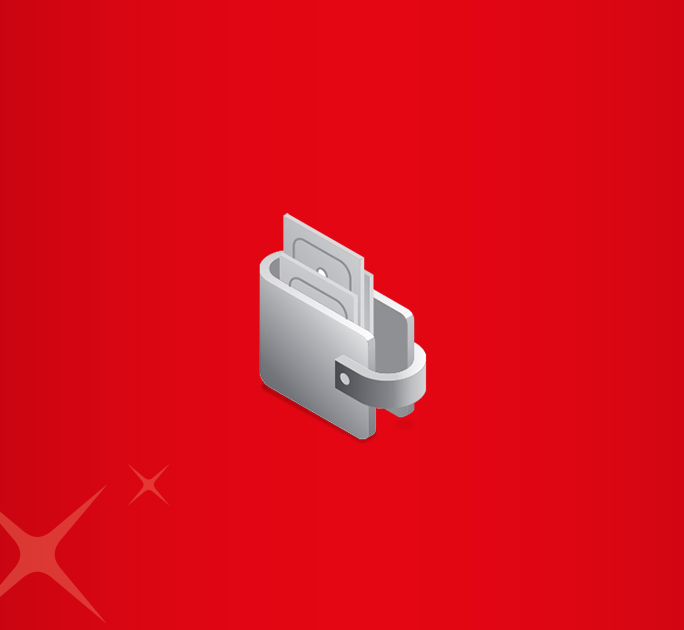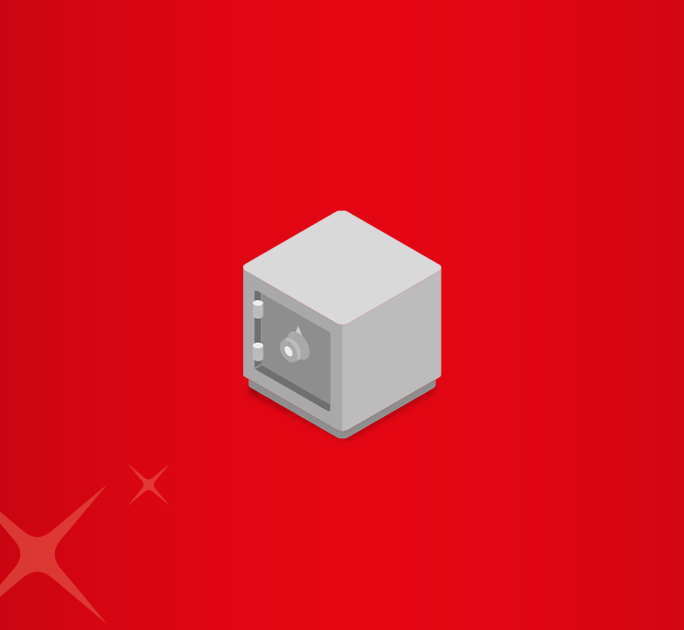- Save
- Invest
- Borrow
- Pay
- More
- NRI Banking
- Customer Services

Features and Benefits of Recurring Deposits
Key Takeaways
- Recurring Deposits (RDs) let customers earn higher interest by saving a small amount of money regularly.
- The returns on Recurring Deposits are similar to those offered by Fixed Deposits (FDs).
- Instead of locking a lump sum amount in a deposit in one go, RDs allow customers to invest in manageable instalments.
- RDs encourage individuals to develop a regular savings habit by consistently setting aside a portion of their income.
- Anyone, including NRIs and minors above 10, can open an RD in India.
Introduction
Life can throw a curveball at any time, so it’s always wise to prepare yourself for rainy days - rising living costs, funding your child's education, or planning for retirement. Having a nest egg set aside can provide much-needed financial security when things get rough. But with busy schedules and ever-increasing expenses, saving money consistently can be challenging.
This is where Recurring Deposit Accounts can help you. They offer a simple and convenient way to set aside money regularly, helping you reach your financial goals. In this blog post, we'll explore the features and benefits of Recurring Deposit Accounts, and how they can help you save for the future.
So, keep reading to learn more.
What is a Recurring Deposit?
As the name suggests, a Recurring Deposit is a type of term deposit that allows individuals to invest a set amount of money at regular intervals over a predetermined period, typically 6 months to 10 years.
Unlike a Fixed Deposit where you invest a lump sum amount upfront, in a Recurring Deposit, you build your savings gradually. This makes it a convenient option for individuals seeking to save regularly and earn interest on their deposits. It's a suitable option for short-term goals, like saving for a down payment on a house or funding a vacation, as well as long-term aspirations such as financing your child’s education or planning for retirement.
Additionally, Recurring Deposits are typically offered by central banks in India, providing a safe and accessible option for individuals to grow their savings.
|
RDs |
|
|
Interest Rate |
Between 5% to 8% |
|
RD Minimum Monthly Amount |
₹100 |
|
Tenure |
6 months to 10 years |
|
Compounding Frequency |
Quarterly |
|
Premature Withdrawal |
Allowed but with a penalty |
|
Partial Withdrawal |
Not allowed |
|
Suitability |
Individuals with short or long-term financial goals want to stay committed to saving while enjoying the benefit of an interest rate. |
Download DBS Bank DBS app to get started.
How Does an RD Account Work?
Let’s take an example to help you understand how a Recurring Deposit works:
Imagine you open an RD Account with a bank. You decide to deposit ₹100 every month for 1 year.
- Now, when you open it, you choose the monthly deposit amount (₹100) and the duration (1 year). You also decide when the deposit will be made each month (the date).
- Every month, on the chosen date, ₹100 is deducted from your bank account and deposited into your RD Account.
- The bank calculates the interest you've earned on your investment every quarter. Let's say the interest rate is 6% per annum, compounded quarterly. After the first quarter, you've deposited a total of ₹300 (₹100 per month for 3 months). The interest earned on this amount is calculated and added to your savings.
- This process continues each month. With each deposit and the added interest, your RD Account balance grows.
- After the tenure ends, which in our example is 1 year, the RD matures. You receive the total amount deposited (₹1200 in this case) and the interest earned over the tenure.
So, if we calculate the interest earned over the year with the 6% interest rate compounded quarterly, it would be approximately ₹36. The maturity amount you would receive would be your total deposits (₹1200) plus the interest earned (₹36), totalling ₹1236.
Features of Recurring Deposit Accounts
An RD Account has several key features that make it an attractive investment option. Before we proceed to learn the benefits of Recurring Deposit Accounts , let’s take a look at their features:
- Recurring Deposits help investors set aside a small portion of their earnings every month and invest them in a product that could fetch them higher returns than a regular savings bank account.
- The minimum amount required to open an RD Account varies from bank to bank and can be as low as ₹100.
- Investors can subsequently deposit any amount in the RD when their first instalment is due, but it should be more than the minimum amount deposited at the time of account opening.
- Banks allow you to deposit money in your RD Accounts on a monthly, quarterly, or half-yearly basis.
- You can create RDs for tenures ranging from 6 months to 10 years. So, for instance, if you open an RD for two years, you will have to invest money in the deposit every month for two years.
- Most banks typically offer the same interest rate on RDs as they provide on FDs, without requiring lump-sum deposits.
- The interest on Recurring Deposits is compounded quarterly and paid on maturity.
- Premature withdrawals are generally allowed from a Recurring Deposit, but banks may charge a penalty in the form of lower interest rates than promised.
- Interest on Recurring Deposits is subject to Tax Deducted at Source (TDS) of 10% under Section 194A of the Income Tax Act, 1961. However, TDS will only be levied if the interest earned on the Recurring Deposits is more than ₹10,000 in a year.
Benefits of Recurring Deposit Accounts
Now that you know the features, let’s understand the benefits of Recurring Deposits.
Attractive Returns on Small Investments:
Recurring Deposits allow investors to earn attractive returns even on small amounts of money deposited regularly. This makes RDs suitable for those looking to grow savings steadily over time.
Guaranteed Returns:
Unlike other monthly investment schemes such as Systematic Investment Plans (SIPs) offered by mutual funds, Recurring Deposits offer guaranteed returns. This assurance can be comforting for investors prioritising stability and predictability in their investment choices.
Encourages Regular Saving Habits:
Recurring Deposits help customers develop the habit of saving money at regular intervals and encourage them to invest for a more secure future.
Loan Facility:
One significant advantage of Recurring Deposits is the loan facility offered by most banks against the RD Account. Using this facility, customers can avail as much as 95% of the deposit amount as a loan (rate may vary from bank to bank).
High Liquidity:
Recurring Deposits are considered highly liquid because money can be withdrawn at any time, providing flexibility in case of urgent financial needs. However, it's essential to be aware that premature withdrawals may incur penalties or lower interest rates, so investors should carefully consider their options before withdrawing funds.
Ease of Regular Investments:
Making regular investments in Recurring Deposits is effortless, as these accounts can be funded periodically through standing instructions. The customer can just tell the bank to credit the RD Account every month from the linked Current or Savings Account.
Senior Citizen Perk:
Additionally, many banks enable senior citizens to earn higher rates, typically around 0.50% higher than the standard rates. Senior citizens can take advantage of this benefit by providing their identity and age-proof documents, making RDs an even more attractive investment option for retirees or older individuals looking to maximise their savings.
Who Can Open a Recurring Deposit Account?
Besides knowing the the benefits of Recurring Deposit Accounts, you should also be familiar with the eligibility criteria for opening this type of deposit. Almost anyone can open a Recurring Deposit in India either on a single or joint mode of holding. The simple eligibility criteria (2) states that the following people can open an RD Account:
- Any Indian citizen, either resident or non-resident.
- Any minor who is above ten years of age and can provide identity proof.
- Any minor below or equal to 10 years of age under the guardianship of a natural parent or a legal guardian.
- Any corporate, company, proprietorship, or commercial organisation.
- Any government organisation.
How to Open an RD Account Online with DBS?
Opening an RD Account with DBS is very easy and requires minimum documentation.
Documents required to open an RD account for existing bank customers:
- Visit DBS bank's net banking website or download and open your Digibank by DBS mobile app.
- Log in using your username and password or other required credentials.
- Find the option for ‘Open Deposit Account’ or ‘Open a Recurring Deposit Account’ or a similar-sounding option.
- Choose the amount and tenure for your Recurring Deposit.
- Select the account to be debited and set the date for automatic debiting (standing instructions).
- Review the details and confirm to submit your request.
Documents required to open an RD account for new customers without an account:
- Go to the DBS bank’s official website or download Digibank by DBS mobile app from the app store.
- Look for an option like ‘Open a New Account.’
- Complete the online application form with your personal details such as name, address, date of birth, and contact information.
-
Upload scanned copies or photos of required documents, which typically include:
- Proof of Identity (Aadhar Card, Driver’s License, or Passport)
- PAN Card
- Proof of Address (Rent Agreement or Utility Bill)
- Passport-sized photograph
- Follow the instructions to complete the Know Your Customer (KYC) process. This may involve a video call for verification.
- Once your account is opened, fund it with an initial deposit if required.
- Register for internet or mobile banking by setting up your username and password. After that, proceed as described above for existing customers.
Final note
Now that you know the benefits of Recurring Deposits, you can consider opening one to create a corpus. An RD can help you achieve your short and long-term financial goals, whether it's saving for something small like the latest phone or accumulating a lump sum for a down payment of a home loan. This investment gives you attractive and guaranteed returns and is a must-have for people looking for safe investment avenues.
Frequently Asked Questions
-
Are there any risks in Recurring Deposit investment?
Recurring Deposits carry very little to no risk. They are simple investment options that offer fixed returns since the invested amount is not subject to market fluctuations.
-
Can I withdraw my RD before the term is over?
Yes, you can withdraw your RD before the term is over. However, banks typically charge a penalty for premature withdrawals, which usually involves receiving a lower interest rate than initially promised.
-
Can I include nominees in my Recurring Deposit Account?
Yes, you can add a nominee to your Recurring Deposit Account. You can also change the nominee at any time during the RD period.
Download DBS Bank app to open a recurring deposit and see your dreams take shape.













